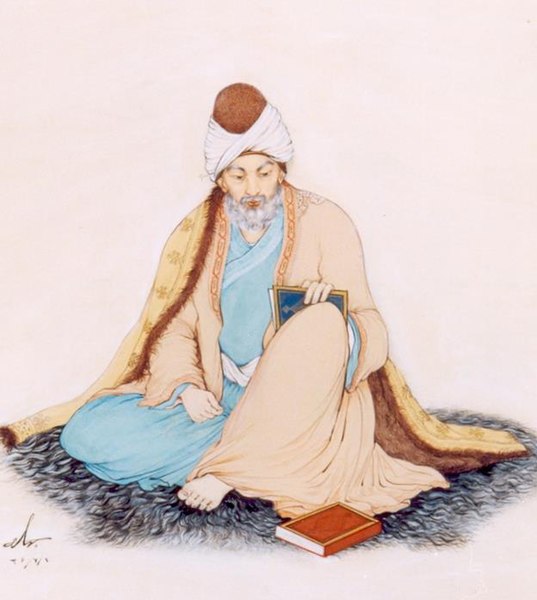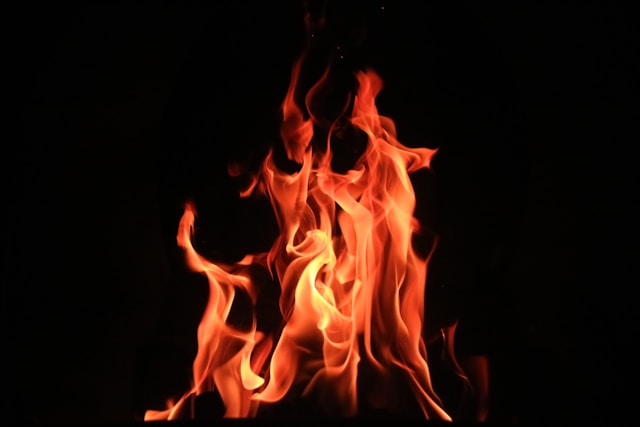Jalal ad-Din Muhammad Rumi, known simply as Rumi in the West, stands as one of history’s most influential spiritual teachers and poets. Born in 1207 in what is now Afghanistan, Rumi grew up in a family of accomplished Islamic scholars. He later settled in Konya (in present-day Turkey), where he taught Islamic jurisprudence until a profound encounter with the wandering mystic Shams of Tabriz transformed his life and teachings forever.
This transformation led Rumi from being a respected religious scholar to becoming one of the world’s greatest mystical poets and spiritual teachers. His works, particularly the Masnavi (a six-volume masterpiece of spiritual teaching stories) and his collection of poems known as the Divan-e Shams-e Tabrizi, continue to touch hearts and transform lives across cultural and religious boundaries.

The Path of Love
At the heart of Rumi’s teaching lies the primacy of love. Not the limited, romantic love that we typically think of, but divine love that pervades all existence. As he expresses it:
Your task is not to seek for love, but merely to seek and find all the barriers within yourself that you have built against it.
This profound statement encapsulates a central aspect of his teaching: love isn’t something we need to acquire or create—it’s our natural state. Our spiritual work involves removing the obstacles that prevent us from experiencing this ever-present love.
The Divine Within
For Rumi, the divine isn’t a distant entity but the very essence of our being. He teaches that our sense of separation from God is an illusion, albeit a persistent one. Through his poetry, he continually points to the truth of our divine nature:
You are not a drop in the ocean. You are the entire ocean in a drop.
This teaching invites us to recognize our true identity beyond the limited ego-self. The spiritual journey, according to Rumi, isn’t about becoming something different but about recognizing what we already are.
The Power of Present Moment
Rumi emphasizes the importance of being fully present in the moment. He teaches that our suffering largely comes from living in regret about the past or anxiety about the future, while reality only ever exists now. His famous words capture this wisdom:
The past and future veil God from our sight;
Burn up both of them with fire.
How long will you be partitioned by these segments?
How long will you stay divided by pieces?
The Dance of Life
One of Rumi’s most distinctive contributions to spiritual teaching is his emphasis on movement, music, and dance as spiritual practices. The whirling meditation practice he originated (now known through the Mevlevi Order of whirling dervishes) embodies his teaching that the entire universe moves in a cosmic dance of love.
For Rumi, this dance isn’t just physical—it’s a metaphor for how we should move through life: with grace, surrender, and attention to the divine presence that moves through all things.
Transcending Religious Boundaries
Though deeply rooted in Islamic mysticism, Rumi’s teachings transcend religious boundaries. He teaches that the various religious traditions are like different lamps containing the same light. His inclusive vision is captured in these famous lines:
Out beyond ideas of wrongdoing and rightdoing,
there is a field. I’ll meet you there.
This field represents the space of pure consciousness or awareness where all divisions dissolve into unity.
The Journey of Transformation
Rumi teaches that spiritual transformation often involves pain and difficulty. Rather than avoiding these challenges, he encourages us to welcome them as opportunities for growth:
The wound is the place where the Light enters you.
He suggests that our difficulties and suffering can become doorways to deeper understanding and connection with the divine, if we approach them with the right attitude.

Practical Wisdom for Daily Life
While Rumi’s teachings reach mystical heights, they also offer practical guidance for daily living:
Unity of Existence
He teaches that everything is interconnected, and that seeing separation is the fundamental illusion. This understanding naturally leads to compassion and respect for all beings.
The Power of Silence
Rumi emphasizes the importance of silence and inner listening. Beyond the noise of thoughts and opinions lies a deeper wisdom that can only be accessed through stillness.
Embracing Change
He teaches that impermanence and change are natural and necessary aspects of life. Rather than resisting change, we should embrace it as part of the divine dance.
Authenticity
Rumi consistently encourages authenticity over conformity. He teaches that each person has a unique way of expressing divine truth and that finding and expressing this authenticity is part of our spiritual work.
The Role of Community
While emphasizing internal transformation, Rumi also recognizes the importance of spiritual community. His own relationship with Shams demonstrates the transformative power of spiritual friendship.
Relevance for Today
Rumi’s teachings hold particular relevance for our modern world. In an era of increasing division and materialism, his emphasis on unity, love, and spiritual awareness offers a much-needed antidote. His poetry and teachings provide guidance for:
- Finding meaning beyond material success
- Developing genuine self-acceptance and self-love
- Building bridges across cultural and religious divides
- Cultivating presence in an age of distraction
- Transforming suffering into spiritual growth
The Living Tradition
Today, Rumi’s influence continues to grow. His poetry is widely read and his teachings inspire people from all walks of life. The Mevlevi Order, which he founded, continues to maintain and share his spiritual legacy through traditional practices including the famous whirling ceremony.
The essence of Rumi’s teaching remains simple yet profound: love is the fundamental reality, and our journey involves removing the veils that prevent us from recognizing and living this truth. As he reminds us:
Let yourself be silently drawn by the strange pull of what you really love. It will not lead you astray.
This invitation to follow our deepest calling while recognizing the divine presence in all things continues to resonate across centuries, cultures, and traditions, making Rumi’s wisdom as relevant today as it was in his own time.

